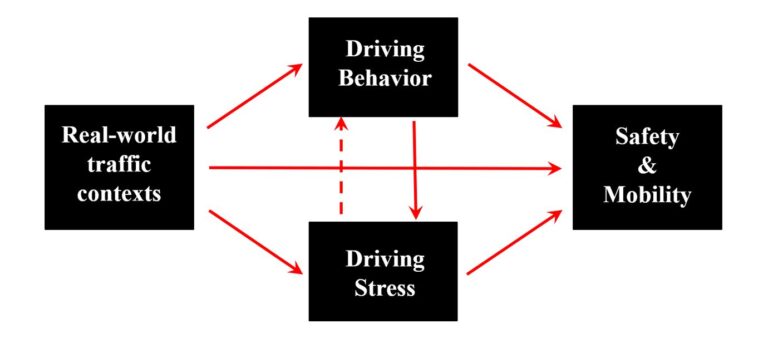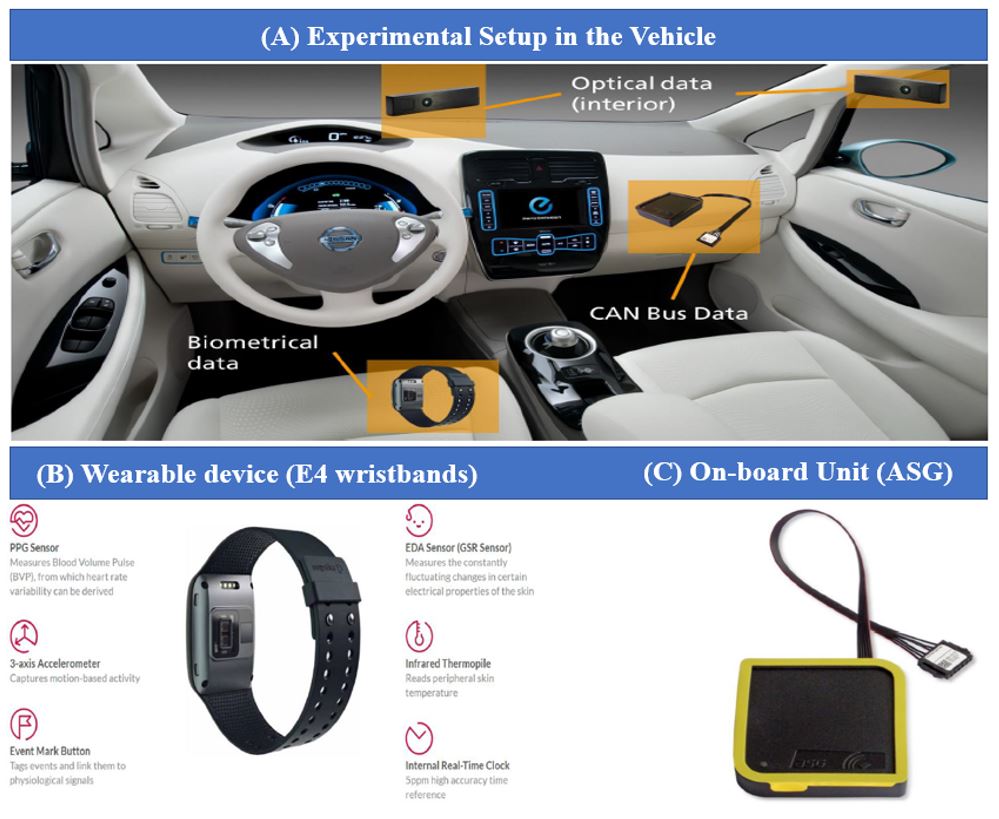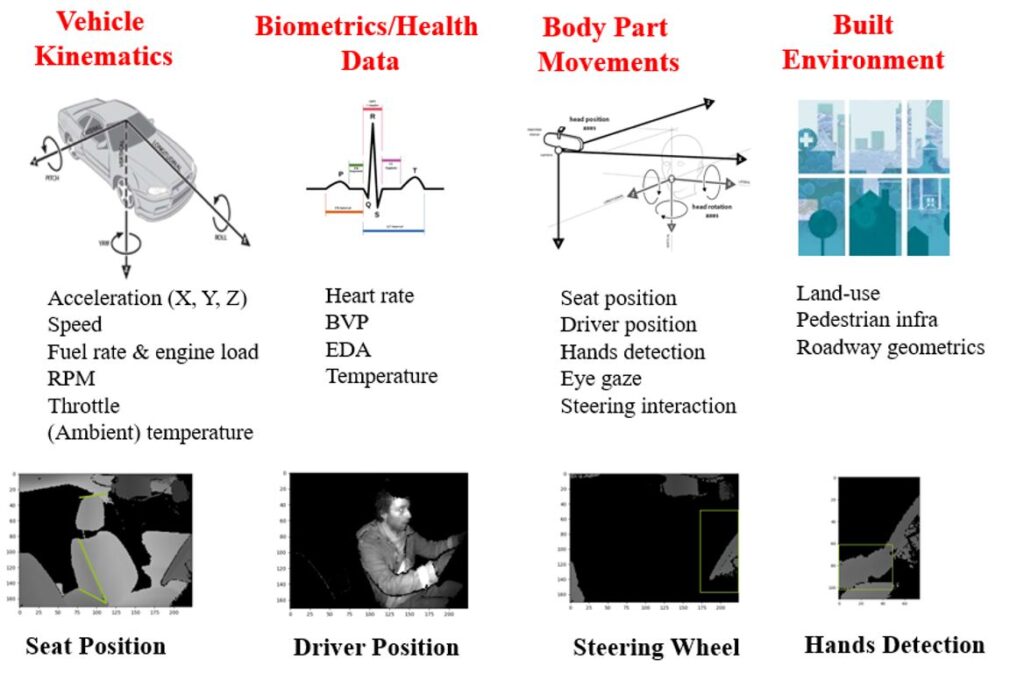Driving Stress, Volatility & Electric Vehicles

Driving behavior is widely considered a leading cause of traffic crashes as it contributes to over 90% of traffic crashes. From a driving behavior standpoint, highly relevant is the new concept of driving volatility which quantifies the extent of variations in microscopic/instantaneous driving decisions in connected and/or naturalistic driving environments.
Related to the safety and mobility implications of real-world driving behavior and the volatility therein, another equally important element is driving stress. Traditionally, self-reported psychological survey constructs have been used to measure perceived stress associated with driving.
A key gap in the literature relates to the links between microscopic driving behavior/volatility and drivers’ stress levels in real-world environments.
Using a blend of wearable devices and CAN-bus loggers, we conduct a natural experiment to collect over 0.2 million geo-referenced temporal samples of real-world driving behavior and health biomarkers for hundreds of driving sessions/trips. We complement the objectively-assessed behavioral and health data with detailed roadway geometric data extracted from OpenStreetMap. We then examine the dependencies between driving volatility and stress (captured through biometric markers such as heart rate).
By capturing systematic and random heterogeneity in a simulation-assisted empirical framework, the findings will shed new light on how driving volatility in real-world correlates with biometrically-derived driving stress.


We expect the study findings will have several important implications for transportation safety. The integration of driving behavior and health data enables exploration of real world driving performance and driving stress profiles – an issue fundamental to the design of proactive driver assist, warning and control applications.
Major Contributors:
Sebastiano Milardo, Ph.D., Postdoctoral Scholar, MIT Senseable City Lab.
Umberto Fugiglando, M.S., Research Manager & Partnership Lead, MIT Senseable City Lab.
Paolo Santi, Ph.D., Principal Research Scientist, MIT Senseable City Lab.
Carlo Ratti, Ph.D., Professor & Director, MIT Senseable City Lab.
Publications:
Wali, B., Milardo, S., Fugiglando, U., Santi, P., Ratti, C. (2021) Integrating CAN-Bus and Biometric Health Data for Assessing Heterogeneous Relationships Between Driving Volatility and Driving Stress. (Revision submitted).
We would like to thank AMS Institute, Allianz, Anas S.p.A., Austrian Institute of Technology, Brose, Cisco, Dover Corporation, Ford, Fraunhofer Institute, KTH Royal Institute of Technology, Kuwait-MIT Center for Natural Resources, Lab Campus, Politecnico di Torino, RATP, SMART—Singapore-MIT Alliance for Research and Technology, SNCF Gares & Connexions, Teck, UBER, UTEC – Universidad de Ingeniería y Tecnología and all the members of the MIT Senseable City Lab Consortium for supporting this research. The authors thank the two anonymous reviewers for providing very useful feedback on earlier version of the manuscript.